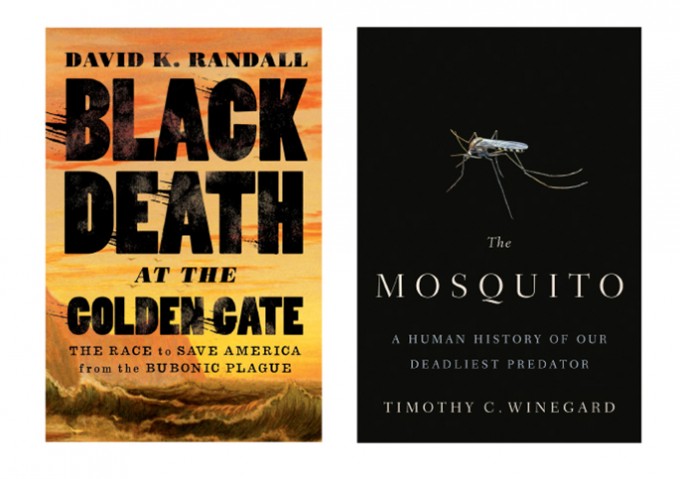Nursing Book Club
Black Death at the Golden Gate by David K. Randall and The Mosquito: A Human History of the Deadliest Predator by Timothy C. Windegard
Two books about the politics of epidemics

As we confront the spread of the coronavirus, I decided to investigate two recent nonfiction books about contagious disease, and the social and political implications of public health during an epidemic.
The first is Black Death at the Golden Gate, by journalist David K. Randall. This gripping true story begins in 1899, when a bookkeeper named Yuk Hoy arrived in Honolulu from China with a fever and the black spots of bubonic plague. His Chinese doctor, Li Khai Fai, was all too familiar with the symptoms, having seen the plague kill 10 million people in China in only five years before spreading to India, Australia, Scotland and North Africa to kill 5 million more.
Li had hoped that the oceans would be a barrier against further spread of the disease, but the arrival of this dying Chinese man proved those hopes were in vain. Six months after Yuk Hoy’s death, a ship arrived in San Francisco with a lifeless passenger who had also shown the first signs of plague.
The rest of this page-turning story is about the race to contain the disease before it spread beyond the harbor of the West’s largest city to the rest of the continental United States. This crisis left politicians debating who was to blame and calling for quarantines of ethnic groups they held responsible.
Vital public health information was deliberately withheld out of fear of the possible economic impact of limiting incoming shipping and rail traffic up and down the coast. Lives were lost and many careers were ended before it was all over.



